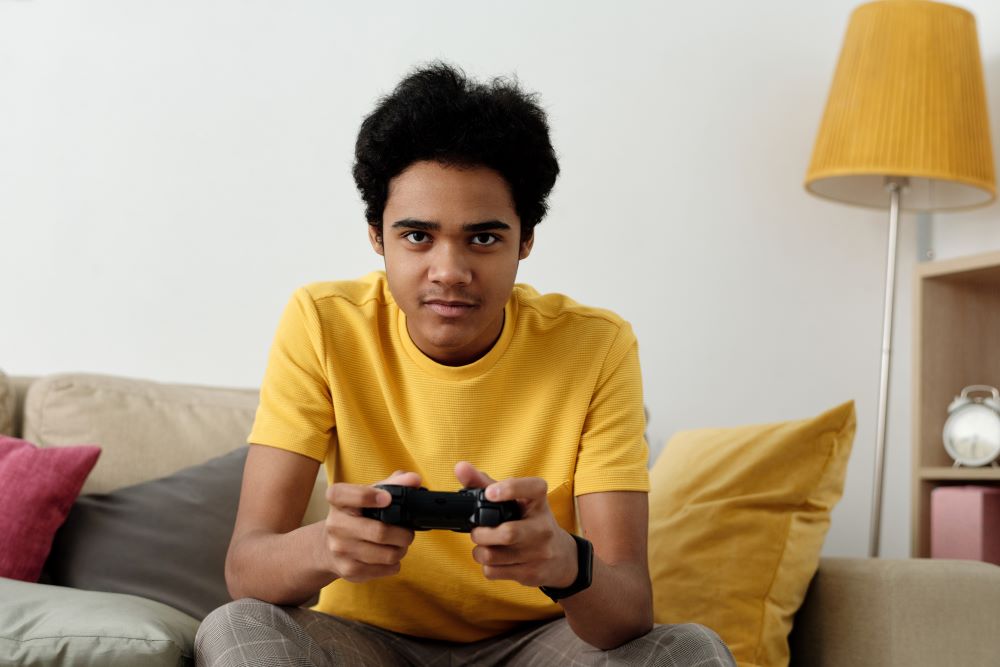Playing video games can be harmless but it’s important to pay attention to signs of addiction.
Video games are incredibly popular. Not only a favored way for young people to spend their free time, but video games are also more popular than ever with adults. And, thanks to the development of online gaming over the last twenty years, it’s now possible for people to play with others around the world while engaging in friendly competition.
Not all of that is bad. In many ways, playing video games is analogous to watching TV – a relatively passive activity that can serve as a way to unwind at the end of a long day. Also, it can be a way to connect with others over a shared interest. However, like anything else, video games can become a problem when taken too far, and young people seem particularly prone to addiction in this area.
One of the primary drivers of youth video game addiction seems to be the ever-present availability of this form of entertainment. Most young people are rarely without one type of game or another – whether it is played on a video game console like an Xbox or PlayStation, a mobile device, a computer, a tablet or another form of technology. Since it’s always available, many young people find themselves coming back to this form of entertainment again and again.
Calling this an addiction isn’t a too far of a reach, as gaming disorder has been recognized by the World Health Organization and is outlined in a diagnostic manual used by mental health providers. Some of the signs that a young person might be addicted to video games include skipping other enjoyable activities to continue playing games, or getting very upset when told that they need to turn off the game for a while.

Some might argue that there are worse things in the world to be addicted to than video games, and that is likely true. However, young people who wind up with a video game addiction tend to face plenty of negative side effects or consequences of logging so many hours in front of a screen. Some of those issues can include withdrawing from social life, increasing symptoms of anxiety and depression, and changes in mood. The hours spent in cyberspace can take a significant toll on brain chemistry.
Perhaps the best tool a parent has available in terms of managing video game addiction is placing limits on how much is played. That might mean not allowing any video games until after homework has been finished, or it might mean no games are allowed after a certain time. Setting curfews on devices can help with this. The right solution will vary from one family to the next, but working on placing curbs on this form of entertainment while still allowing it in moderation can be a winning strategy.
Video games can be a healthy, enjoyable part of life for many people, but they can also be harmful. By knowing what to watch for, and by paying close attention to the actions and behaviors of their children, parents can help steer them in a direction that allows video games to play a positive, healthy role in the lives of these young people rather than the other way around.
Sources:
Counselor examines gaming addiction in kids


Join the conversation!